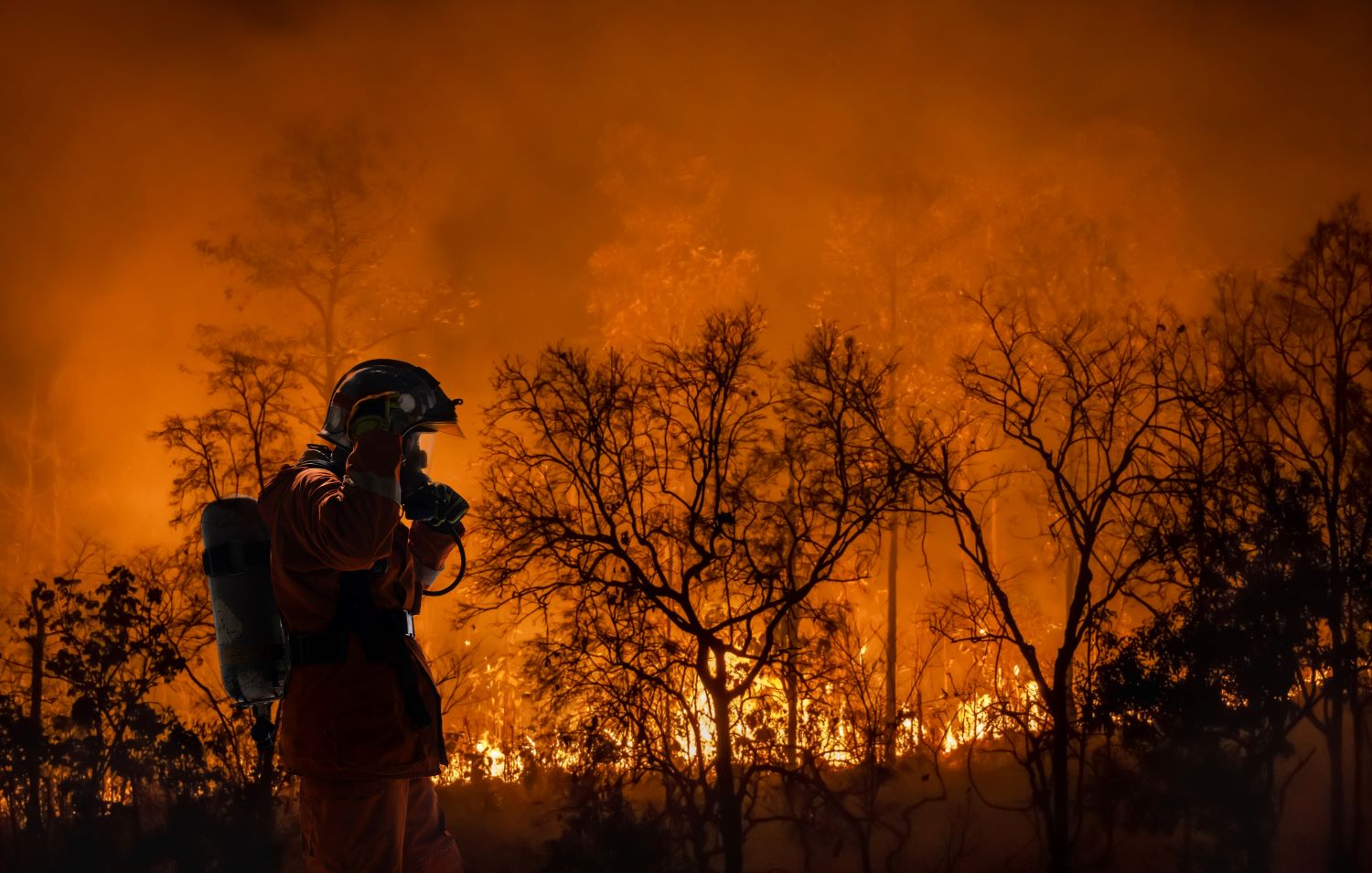 Add My Company
Add My Company

Environmental campaigners claim humans have made “drastic and irreversible” changes to the climate, which have consequently hastened global warming and caused more dangerous weather extremes.
Wildfires, heatwaves and flooding experienced all over the world throughout 2023 are just a small taste of things to come, according to the Intergovernmental Panel on Climate Change.
© Toa55 / Shutterstock.com
The organisation says we must make “very significant reductions” in greenhouse gases with immediate effect. However, this may still not be enough to reverse the damage already done.
Global warming effects
Sea levels are expected to rise, and extreme weather events will become more frequent and severe as temperatures increase.
Climate change has increased faster since 1950, according to the IPCC, bringing with it the torrential rain, flooding and storms that have blighted the UK during the past year.
There is more harmful carbon dioxide in the earth’s atmosphere today than at any other time in history.
With more droughts likely in the future, water is going to be scarce. This means some of the crops grown today may not survive in the drier climate and higher temperatures.
The modern trend of floods and storms causing damage to buildings looks set to worsen and scientists say the infrastructure will need to be adapted to the new conditions.
Published every five years, the UK Climate Change Risk Assessment says rising sea levels will cause problems for the 39% of people worldwide who live within 100km of the coast. An estimated 600 million people globally who live in a low-level coastal region and a further 200 million residents of coastal flood plains could be put at risk.
The report claims even if we reduce emissions significantly with immediate effect, the sea level will continue to rise until at least 2100. Many coastal residents will have to flee their homes as a result. We will also need to improve flood defences.
How to stop global warming
Scientists say if we reduce harmful emissions sufficiently, while we probably can’t stop global warming altogether, we can certainly slow the rate of increase.
Humans are still failing to protect our planet, according to the consortium of more than 2,000 scientists who make up the IPCC. Rather than helping to stem climate change, we’re continuing to increase the greenhouse gas problem by burning fossil fuels, causing more carbon dioxide emissions.
Assuming the conclusions drawn by the IPCC are accurate, planting more trees worldwide and reducing global emissions immediately could help to slow down and potentially reverse climate change.
However, it takes a long time for the earth’s environment to absorb carbon dioxide and we’re producing it quicker than the environment can absorb it.
We need to stop clearing the world’s forests, as this is continuing to reduce the earth’s ability to absorb carbon.
Even if we convinced the global population to stop cutting down forests, reduce carbon dioxide emissions and switch to solar and wind power, too much damage has been done already.
Experts estimate that it could take 1,000 years to put an end to greenhouse gases and reduce the sea level and ocean surface temperature to their former levels in pre-industrial times.
Which countries are the worst offenders?
According to polls, 41% of the world’s population see global warming as a very serious threat.
However, campaigners say “indifference” and “high levels of scepticism” are shown in countries which produce the most climate-changing emissions.
For example, China is the worst offender, producing 28% of the world’s CO2. However, only 23% of people living in China see climate change as a serious threat and 12% believe it isn’t a threat at all.
The United States produces 14% of the world’s total CO2, making it the second highest offender. Unfortunately, the American public are among the most sceptical in the world when it comes to the dangers of climate change. A massive 21% of Americans say climate change is “not a threat at all”.
The world’s third largest carbon emitter, India, produces 7% of the global total, but 19% of the population believe climate change isn’t a risk.
How can we step up and help?
The Swedish environmental campaigner Greta Thunberg has a saying: no-one is too small to make a difference. This means we can step up our efforts as individuals by carrying out some simple actions.
For example, having a simple recycling setup at home and work can help massively. Solent Plastics produces a range of recycling bins to make it easy for everyone to participate.
As a responsible supplier, our products are recycled, recyclable or for recycling. We take our environmental responsibilities very seriously.
Fears for the future of the planet due to climate change is the reason why local councils have changed the way they want to collect our rubbish. The government has plans to increase the amount of recycling carried out by local authorities.
In the UK, the waste collection laws have established a framework to impose a greater duty of care on councils. The law will ensure responsible waste management is carried out by regulating licensing, making documentation mandatory and establishing proper waste segregation.
For more information on Are we doing enough to slow down Global Warming? talk to Solent Plastics

